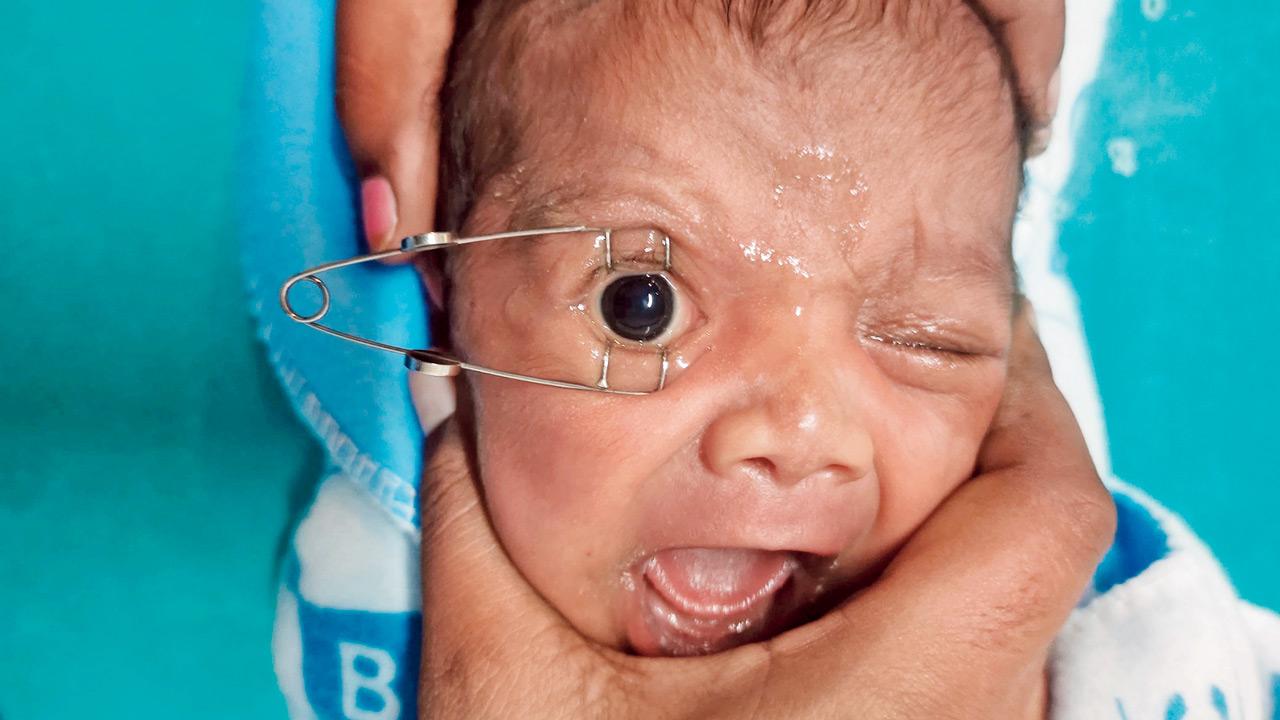Born at just 29 weeks and weighing less than a bag of sugar, Swapnil (name changed) was a tiny survivor in the NICU. But the real battle was happening inside his eyes. His underdeveloped retinae were at risk of developing Retinopathy of Prematurity (ROP)—a condition that can cause blindness in premature babies.
In observance of World Retinopathy of Prematurity (ROP) Awareness Week, retina specialists from across the city stress that with the rise of IVF and surrogacy leading to more preterm births, early detection and intervention have never been more critical. Thanks to timely screening and treatment, Swapnil’s vision was saved—a powerful reminder that early eye screening gives every tiny fighter the chance to see the world.
Data procured by mid-day from 10 hospitals in Mumbai, Thane, and Navi Mumbai shows that a total of 7175 newborns (April 2024 – March 2025 and April 2025 – September 2025) were screened, which includes follow-up screening of babies, among them, The King Edward Memorial Hospital (KEM) in Parel recorded the highest combined volume with 2,181 screenings, followed by Lokmanya Tilak Municipal General Hospital in Sion with 1836.
Case of baby Swapnil
According to Dr Anand Subramanyam, who treated infant Swapnil, “At three weeks of age, our tiny fighter, Swapnil, began retina screening for ROP. His parents were informed and reassured about the importance of regular screening. By five weeks, his retina showed signs of ROP. Special images of his retina were taken using a specialised instrument, and the images were explained to his parents. He underwent a laser procedure (not surgery), performed by a retina specialist under the supervision of a paediatrician. Within two weeks, his retina healed beautifully. Now, he can smile at his parents and will soon be running around with his toy car.”
Dr Subramanyam, a retina specialist attached to KBH Bachooali Charitable Ophthalmic and ENT Hospital, Parel, said, “Today, with most IVF and surrogacy procedures, multiple embryos are implanted, of which one or two survive. With proper care, we often see twins or even triplets, which increases the risk of preterm births. Around 30 percent of preterm babies develop Retinopathy of Prematurity (ROP). Moreover, there are usually no visible symptoms or signs, so by the time the infant shows signs like a white reflex or squinting, the disease may have already advanced, putting the baby at risk of losing vision. Therefore, screening for ROP immediately after birth is crucial, especially for infants born through IVF or surrogacy.”
Protecting the Future of Preterm Babies
Every premature baby deserves a chance to see the world clearly. Timely eye screening starting at three weeks following birth can prevent blindness. A little care at the right time can change a lifetime,” said Dr Karobi Lahiri Coutinho, consultant vitreo retinal surgeon, Bombay Hospital Institute of Medical Sciences and National Ambassador for ROP.
“Premature births bring not just physical challenges, but also emotional turmoil for parents who anxiously wait, hoping their baby will thrive. Among the most vulnerable are their delicate eyes. Early screenings for ROP can mean the difference between sight and blindness. It’s not just about saving vision, it’s about saving a future full of possibilities. By ensuring timely intervention, we can give these tiny warriors the chance to grow, to dream, and to live without limitations. As parents, demanding an eye examination at three weeks by eye doctors dealing in prematurity problems is a fundamental right of the child for a colourful future. Gift your child with vision!” she added.
7175
screening encounters: The Fight Against Childhood Blindness
World retinopathy of prematurity disease awareness
The data compiled from various Mumbai-Thane-Navi Mumbai hospitals for two periods (April 1, 2024 to March 31, 2024, April 1, 2025 to September 30, 2025) highlights the significant volume of screening and intervention necessary to prevent blindness caused by Retinopathy of Prematurity (ROP)











